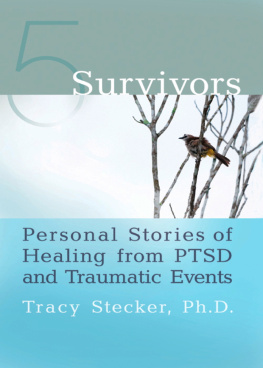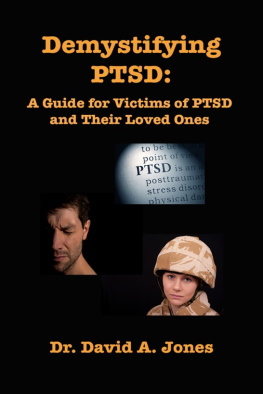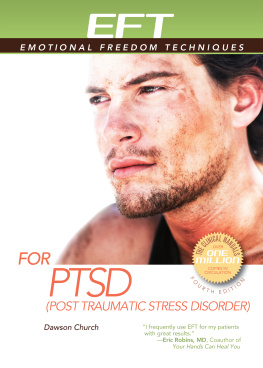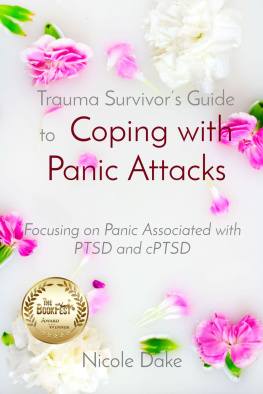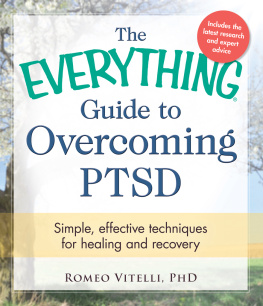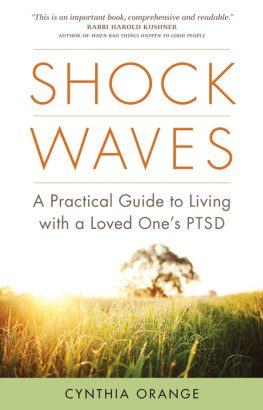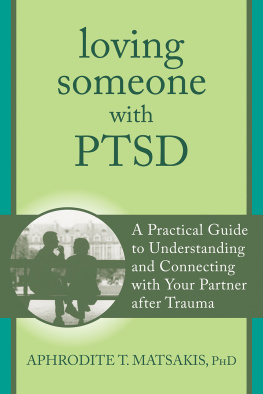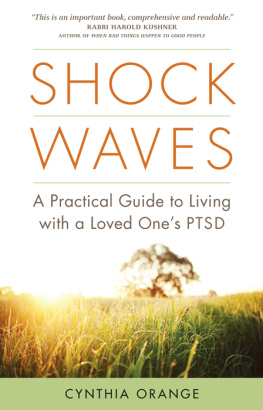Tracy Stecker - 5 Survivors: Personal Stories of Healing from PTSD and Traumatic Events
Here you can read online Tracy Stecker - 5 Survivors: Personal Stories of Healing from PTSD and Traumatic Events full text of the book (entire story) in english for free. Download pdf and epub, get meaning, cover and reviews about this ebook. year: 2011, publisher: Hazelden Publishing, genre: Science fiction. Description of the work, (preface) as well as reviews are available. Best literature library LitArk.com created for fans of good reading and offers a wide selection of genres:
Romance novel
Science fiction
Adventure
Detective
Science
History
Home and family
Prose
Art
Politics
Computer
Non-fiction
Religion
Business
Children
Humor
Choose a favorite category and find really read worthwhile books. Enjoy immersion in the world of imagination, feel the emotions of the characters or learn something new for yourself, make an fascinating discovery.
- Book:5 Survivors: Personal Stories of Healing from PTSD and Traumatic Events
- Author:
- Publisher:Hazelden Publishing
- Genre:
- Year:2011
- Rating:3 / 5
- Favourites:Add to favourites
- Your mark:
5 Survivors: Personal Stories of Healing from PTSD and Traumatic Events: summary, description and annotation
We offer to read an annotation, description, summary or preface (depends on what the author of the book "5 Survivors: Personal Stories of Healing from PTSD and Traumatic Events" wrote himself). If you haven't found the necessary information about the book — write in the comments, we will try to find it.
First-person accounts by five PTSD survivors bring hope to the millions suffering from but not yet diagnosed with this afflictionand their loved ones. Each year millions of people are afflicted by Post-Traumatic Stress Disorder (PTSD). Most struggle to simply make it through the day as sights, sounds, and smells bring their lifes most harrowing experience front and center, to be relived again and again. And many are unaware of the root problem of these symptoms or are unwilling to admit one exists.Through moving firsthand accounts 5 Survivors sheds an intimate light on the impact of PTSD on three veterans of war, a survivor of Hurricane Katrina, and a victim of childhood sexual abuse. With courage and honesty, they tell their stories of trauma, revealing the struggles they faced later in life, and how they eventually worked toward positive change and healing.With the guidance of PTSD expert and researcher Tracy Stecker, Ph.D. who outlines the symptoms and progress of each survivor, those living untreated with PTSD may see themselves in these stories, realize they are not alone, and take action to get help. Friends and family of those who have been greatly impacted by trauma will gain a more intimate understanding of a loved ones struggle and pain.About the author Tracy Stecker, Ph.D., is a psychologist at the Dartmouth Psychiatric Research Center. She developed a curriculum titled Using a Brief Intervention to Motivate Clients to Get Help in collaboration with Hazelden. Her focus is on treating veterans of Iraq and Afghanistan returning with PTSD and/or substance abuse issues. Several of these projects have been funded by the National Institute of Mental Health and the National Institute for Alcoholism and Alcohol Abuse.
Tracy Stecker: author's other books
Who wrote 5 Survivors: Personal Stories of Healing from PTSD and Traumatic Events? Find out the surname, the name of the author of the book and a list of all author's works by series.

